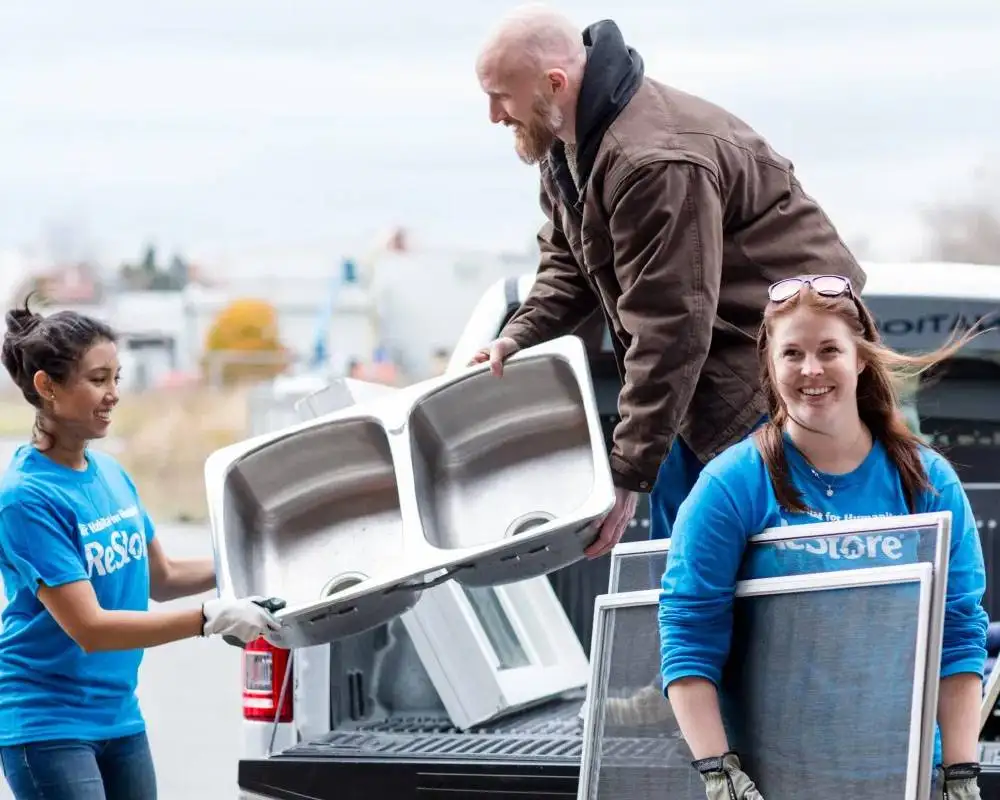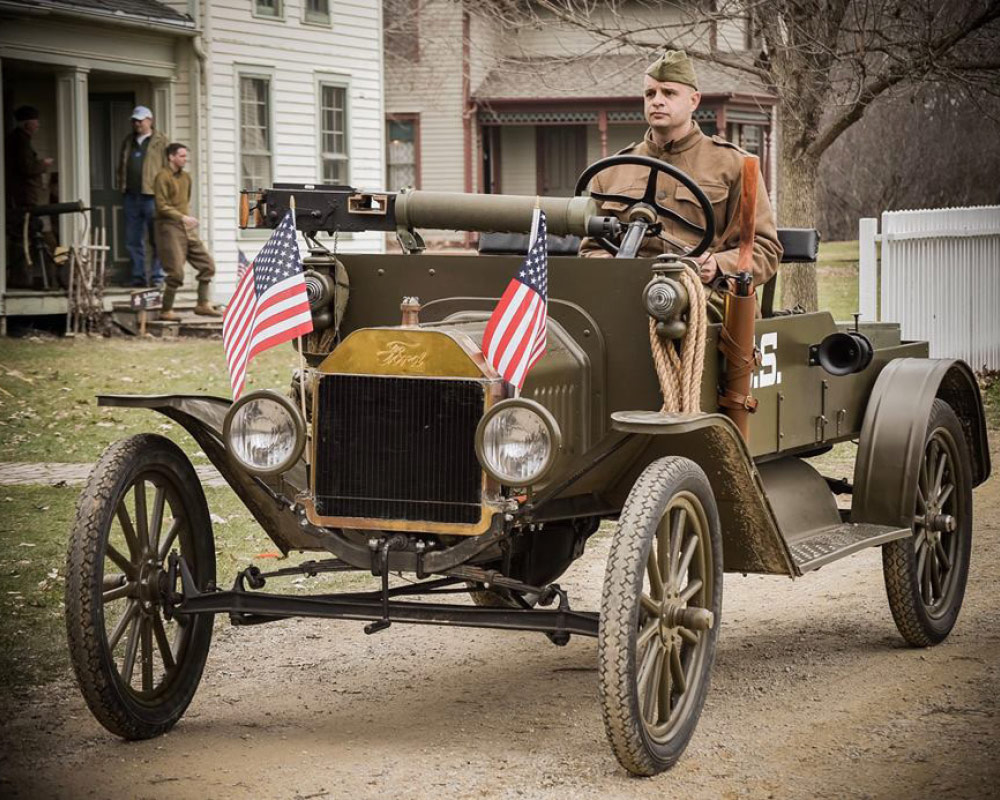World War I reshaped the 20th century and still impacts our lives. Midway Village Museum will help us to understand the transformative years between 1914 and 1918 during its “Tour of Duty: World War I Re-enactment Weekend” on May 22 and 23. Advanced registration is required.
“Without World War I, there would not have been a World War II, and without it, Europe would look completely different today,” says Caitlin Treece, educator at Midway Village. “It really is true that if we don’t know our history, we will repeat it – and we really don’t want to repeat it. We can’t know where we’re going if we don’t know where we came from.”
Due to COVID-19, this event is formatted differently from the museum’s usual spring Great War: World War I event. Visitors will be led in groups of 20 or fewer people, mostly staying outdoors, with each tour culminating in an exciting trench warfare battle. Authentic and replica vehicles, artifact exhibits and presentations by more than 100 World War I re-enactors will be part of the two-hour tour. It’s an enjoyable way for people of all generations to learn together, says Treece, and there’s nothing gory that would scare children.
“Our re-enactors are really good at answering questions and talking with kids in terms they can understand,” she says. “In past years, we’ve found that many kids don’t even know that World War I happened.”
Young people are shocked to learn the war was partly powered by animals like horses, which dragged newly invented tanks onto battlefields.
“The clash of old and modern warfare is one of the unique things about World War I,” notes Treece. “People didn’t have penicillin, yet they had poisonous gas to use as a weapon.”
The rise of industrialization made World War I more deadly than any previous war. Along with poison gas, new technologies used by militaries included tanks, airplanes, submarines, machine guns, modern artillery and flamethrowers. More than 20 million people died; about half were displaced civilians who suffered injury, sickness and starvation.
Midway Village Museum is a favorite location for World War I re-enactors from across the Midwest. The museum not only has 13 sprawling acres for staging re-enactments, but also a permanent trench system built to illustrate how soldiers lived and fought in World War I.
“Especially when it rains and the trenches are a muddy mess, visitors realize how miserable it was for soldiers who lived in trenches for years at a time,” says Treece. Rodent and lice infestations made it even more unbearable.
Another unique aspect of World War I was the coinciding 1918 “Spanish” flu pandemic (the flu didn’t originate in Spain) made worse by troop travel and crowded ships, trenches and training camps such as Rockford’s Camp Grant.
Both the pandemic and Camp Grant will be topics of focus during “Tour of Duty” and the museum will showcase artifacts newly acquired from the former Camp Grant Museum. The camp once stood where Rockford Airport is today. It doubled our region’s population for a time, handing the city an economic boon but worsening the pandemic here.
Suffragist re-enactors from Wisconsin will explain how their state became the first to ratify the 19th Amendment in 1919 and what role the war played.
Re-enactors also will portray Red Cross workers and explain their vital contributions to humanity during war.
The extensive use of government propaganda to garner war support and the controversial passage of the Sedition Act of 1918 – which made it a crime for Americans to “willfully utter, print, write, or publish any disloyal, profane, scurrilous or abusive language about the form of the Government of the United States” – is another unique aspect of World War I. It has relevance today as our society grapples to weigh free speech against the great harm done by disinformation campaigns.
On Sunday only, there’ll be a presentation on the use of animals during war.
Other topics of re-enactor focus will include a French Schneider Tank replica; a World War I model airplane display; the U.S. Army Signal Battalion; the 20th century Marine; 353rd German Infantry, British Army and Russian Armed Forces encampments; Austro-Hungarian, Royal Serbian, Turkish and Italian armies; the Women’s Battalion of Death (Russian); and the German Soldatenheim Club (Soldiers Club).
The museum is located at 6799 Guilford Road. Purchase tickets at midwayvillage.com; call the front desk at (815) 397-9112; visit the Museum Gift Store during regular hours; or email [email protected] with your name, phone number and desired ticket quantity.
Tickets are non-refundable for the rain or shine event. Social distancing protocols and masks are required.
Ticket cost is $14 for adults, $8 for children ages 3-17 and free to infants and museum members. Parking is free.
Questions? Call (815) 397-9112. ❚
















